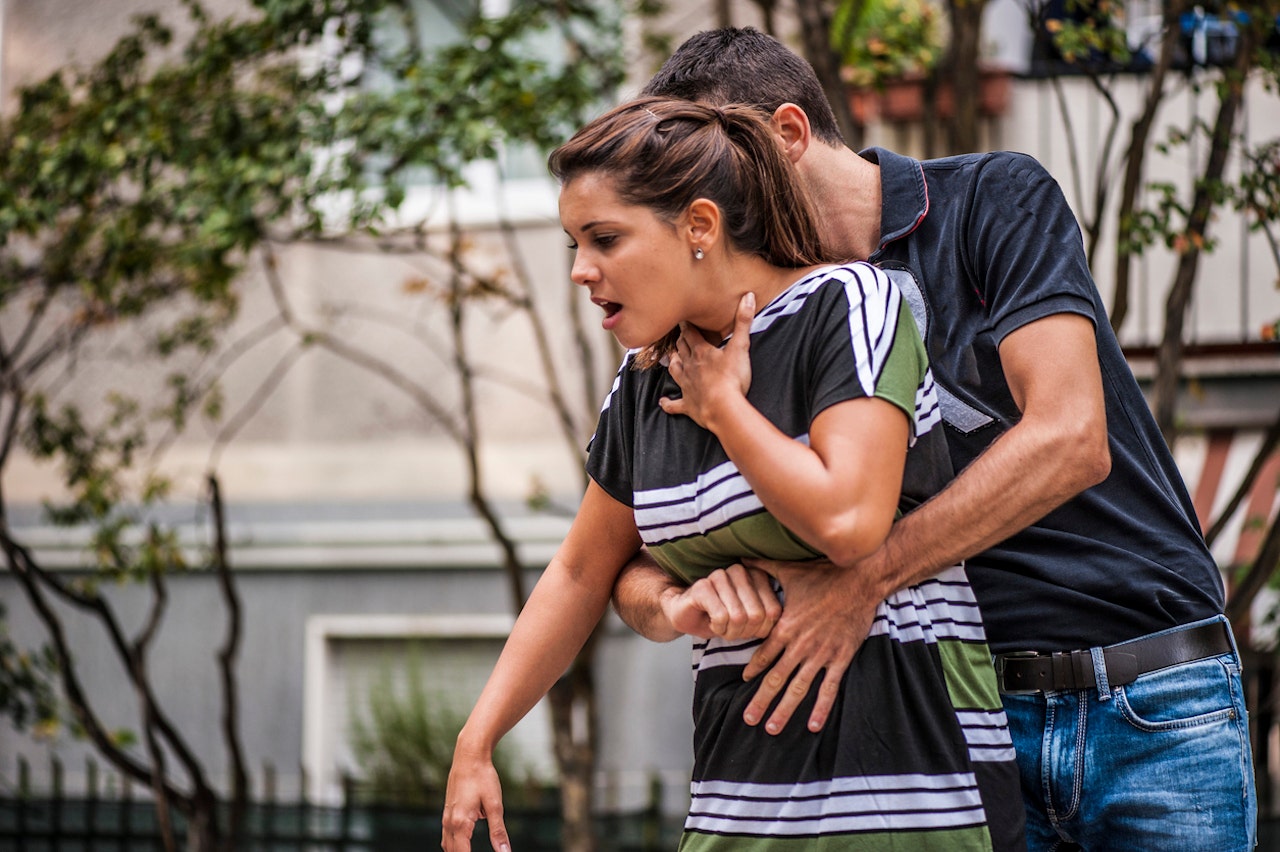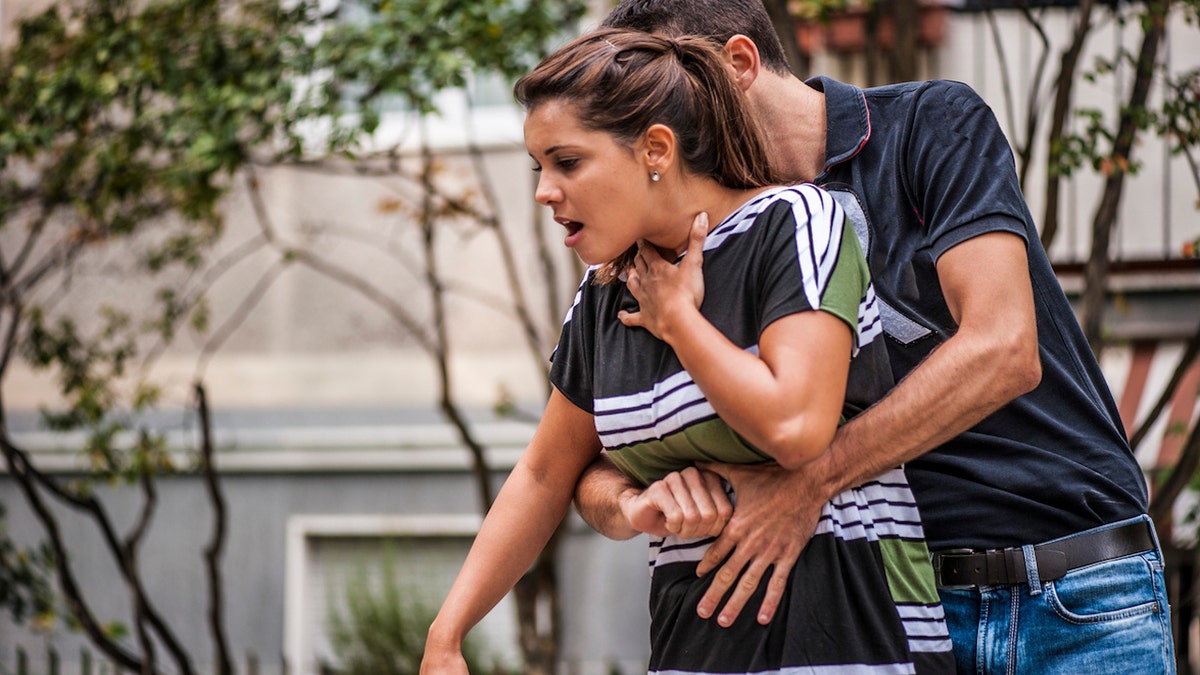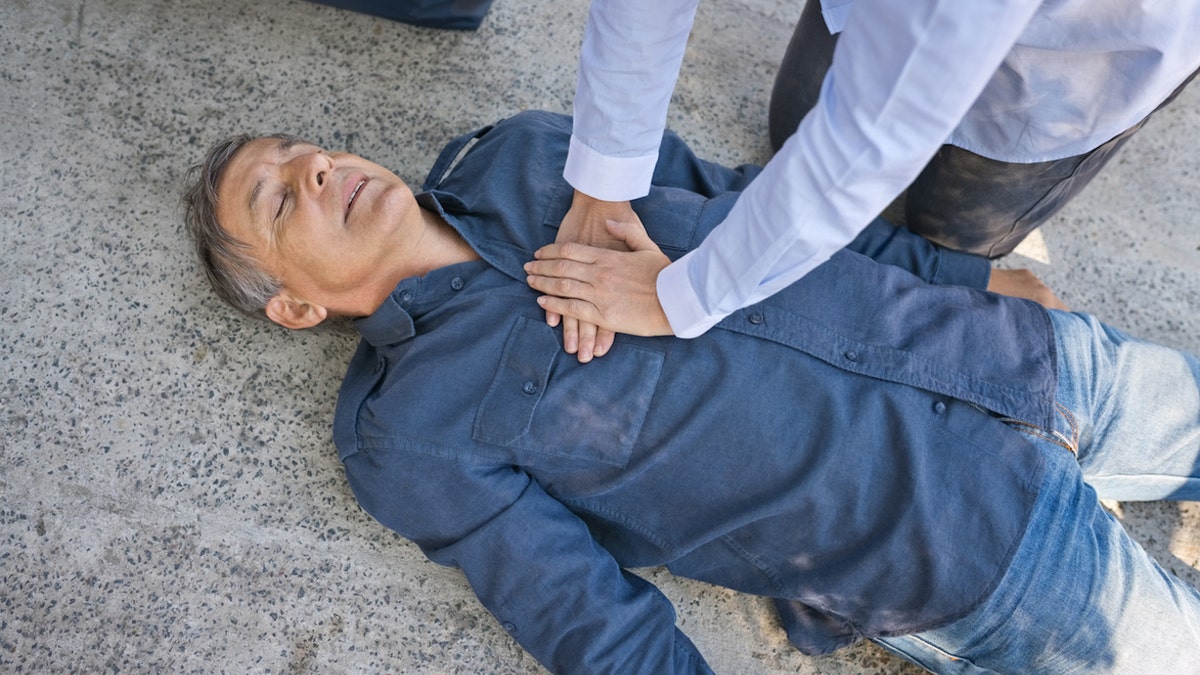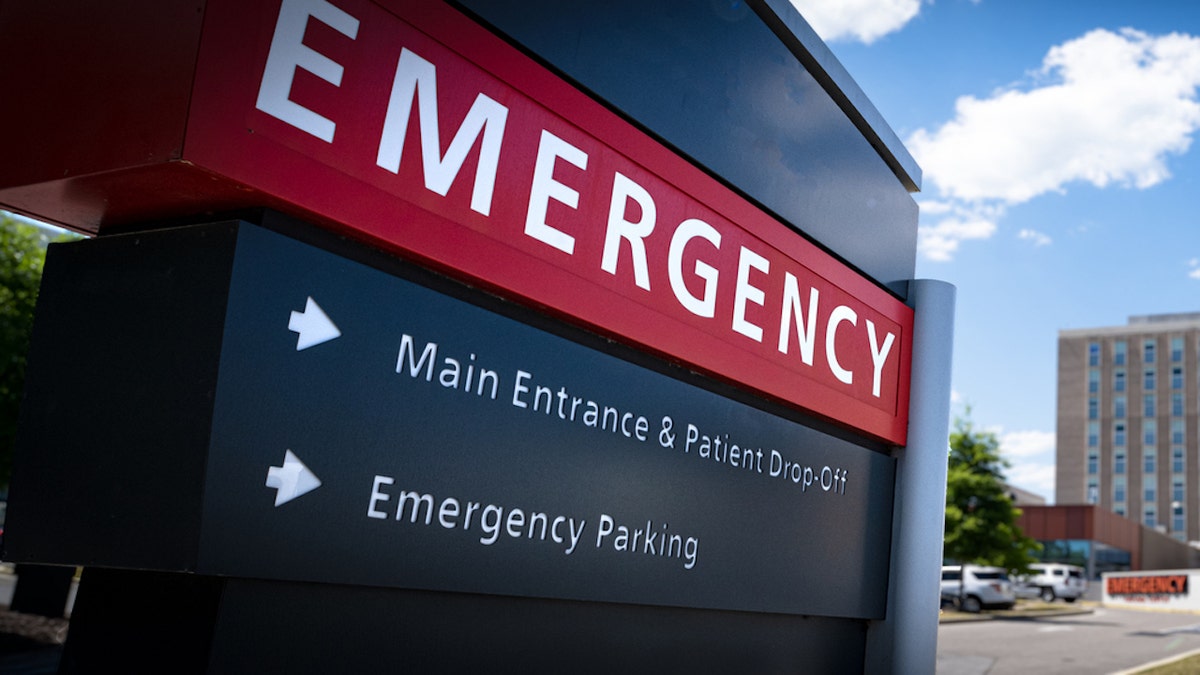
Only half of people in the US think they can be helpful with one emergencyfound a new poll.
The Ohio State University Wexner Medical Center surveyed a national sample of 1,005 Americans and found that only 51% of them knew how to perform hands-only CPR when necessary.
In cases of severe bleeding, only 49% said they could help, and 56% said they would be equipped to help someone who was choking.
The data was collected via telephone and email from April 5 to April 7 this year.
CHILDREN AS YOUNG AS 4 YEARS OLD CAN START LEARNING EMERGENCY MEDICAL TRAINING: NEW REPORT
“The key takeaways from our study are that patient outcomes would improve if the general public were taught some basic lifesaving measures in the areas of hands-only resuscitation, choking rescue and hemorrhage control,” Nicholas Kman, MD, emergency medicine physician bee Ohio State Wexner Medical Center and clinical professor of emergency medicine at The Ohio State University College of Medicine, told Fox News Digital.
“We can save lives while we wait for first responders to arrive.”
Only half of people in the US think they can be helpful in an emergency, a new poll shows. (iStock)
'With every minute that passes, the chance of survival decreases, and if they survive, there is less chance of something good neurological outcome.”
Data shows that 70% to 80% of cardiac arrests occur at home and 20% occur in a public place, Kman said.
HELP NEEDED: AMERICAN HEART ASSOCIATION LAUNCHES 'NATION OF LIFESAVERS' PROGRAM
“The results are bad if there is no witness to the arrest at home,” he told Fox News Digital.
“Imagine if the person having the medical emergency could be your loved one in your home. You may have to provide life-saving treatment until first responders arrive.”

Data shows that 70% to 80% of cardiac arrests occur at home and 20% in a public place, a researcher said. (iStock)
Based on the research results, Kman advised the public to be trained in this life-saving measures — mainly hands-only resuscitation, choking and severe bleeding.
“Look for training that can be offered through community days at hospitals, schools, libraries, community organizations, religious institutions, volunteer groups, festivals and sporting events,” he suggested.
“We are responsible for each other.”
Organizations and websites such as the American Red Cross, the American Heart Association and Stop The Bleed can offer these courses for free or at a low cost, Kman noted.
After you learn the skills, it's important to practice them, the doctor said.
“We would like the public to learn to perform hands-only CPR and practice the skill of CPR every six weeks,” Kman said.

Based on the study results, researchers recommended that people be trained in life-saving measures, especially hands-only CPR, first aid for choking and assistance for severe bleeding. (iStock)
“Like any skill, practice builds confidence. If we don't practice it, we lose that skill.”
The OSU study had some limitations, Kman acknowledged.
“The survey was a convenience sample of a cross-section of Americans,” he told Fox News Digital.
HEART ATTACKS MORE LIKELY DURING PRESIDENTIAL ELECTIONS AND OTHER STRESSFUL TIMES, STUDY SHOWS
“Most demographic groups were equally represented, but several regions are doing better than others here, and their cardiac arrest and survival outcomes reflect that,” he continued.
“States and countries that prioritize educating the public have higher survival rates.”

“If you are trained in these life-saving skills, you will know how to recognize the signs that someone needs help and how to buy time until the [first] first responders can get there,” said a doctor. (iStock)
Dr. Kenneth Perry, emergency room physician in South Carolinawas not involved in the study, but said he was surprised that more people don't feel unprepared.
“Even for medical professionals, experiencing a medical emergency without preparation can be a very stressful event,” he told Fox News Digital.
“It's very important that people have basic lifesaving skills.”
“It's very important that people have basic lifesaving skills.”
The simplest and most useful skill for people to learn is how to operate an automated external defibrillator (AED). These are located in many public places, such as gyms, shopping centers and even some public walkways, according to Perry.
“These devices are the best way to save someone suffering from this cardiac arrest,” he said.
CLICK HERE TO SIGN UP FOR OUR HEALTH NEWSLETTER
“If the person has an abnormal heart rhythm that can be brought back to normal with electricity, this device will save that patient.”
However, this is a very time-sensitive process; it should be done as early as possible, the doctor advised.
“Early defibrillation is directly linked to the best outcomes for patients experiencing out-of-hospital cardiac arrest.”
CLICK HERE TO DOWNLOAD THE FOX NEWS APP
Ultimately, Kwan said, “we are responsible for each other.”
“If you are trained in these lifesaving skills, you will know how to recognize the signs that someone needs help and how to buy time until first responders can get there.”
For more health articles, visit www.foxnews.com/health.













